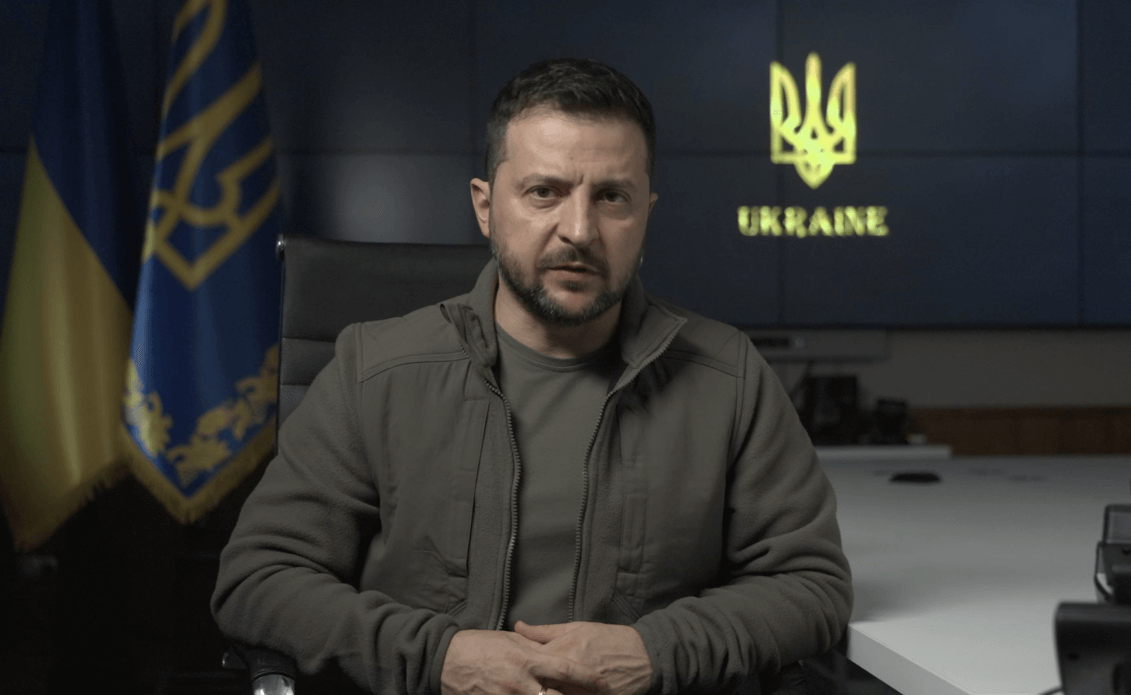Ukrainian President Volodymyr Zelensky rejected Indian Prime Minister (PM) Narendra Modi’s call for “dialogue and diplomacy” with Russia during their phone call on Tuesday, saying that “Ukraine will not conduct any negotiations” with Russian President Vladimir Putin in lieu of the “sham” referenda held in the four Russian-occupied territories of Donetsk, Luhansk, Kherson, and Zaporizhzhia.
Zelensky stressed to Modi that Russia’s attempts to illegally annex Ukrainian territories “are null and void and do not change reality.” He pointed out that Ukraine “has always been committed to a peaceful settlement through dialogue” but noted that “Russia did not stand for dialogue and put forward ultimata instead deliberately undermining this process.”
Ukrainian President Volodymyr Zelenskyy also emphasized the importance of PM Narendra Modi's recent statement that now is not the time for war.
— ANI (@ANI) October 5, 2022
While Modi asserted that “there can be no military solution to the conflict and conveyed India’s readiness to contribute to any peace efforts,” Zelensky emphasised that he had already “outlined our clear formula for peace” in his United Nations General Assembly (UNGA) speech last month and said he is willing to “work together with our partners to achieve it.”
Nevertheless, Zelensky echoed Modi’s statement that “now is not the time for war,” which the Indian leader said during his meeting with Putin at the Shanghai Cooperation Organization (SCO) summit in Uzbekistan last month.
Modi and Zelensky also discussed the issue of global food security, with Zelensky noting that Ukraine is willing to be one of the guarantors with the help of the international community, particularly India, in implementing the grain programme.
Meanwhile, PM Modi highlighted the “safety and security of nuclear installations” in Ukraine, underlining that “endangerment of nuclear facilities could have far-reaching and catastrophic consequences for public health and the environment.” In this regard, Zelensky stated, “Nuclear blackmail by Russia, in particular regarding the Zaporizhzhia Nuclear Power Plant, is a threat not only to Ukraine, but also to the whole world.”
PM @narendramodi had a telephonic conversation with H E Volodymyr Zelenskyy, President of Ukraine.
— PIB India (@PIB_India) October 4, 2022
The leaders discussed ongoing conflict in Ukraine
PM reiterated his call for early cessation of hostilities & need to pursue path of dialogue & diplomacyhttps://t.co/uRQkoTdJGt
Furthermore, the two leaders noted the importance of strengthening bilateral relations and deepening regular full-scale Ukrainian-Indian contacts. Zelensky also once again invited Modi to visit Ukraine.
Zelensky referred to his meeting with Modi during his nightly address on Tuesday, during which he blamed Russia for wanting to end the war “only on the battlefield, not at the negotiating table.” “Russia responds to various Ukrainian proposals to stop aggression and liberate our territory with terror, criminal mobilisation, and political farce,” he declared.
Saying that this could be a “threat to any state in any part of the world,” the Ukrainian president called on all countries that respect international law “to stand up for its basic principles and confirm their respect, in particular, for the principle of the inviolability of borders and the territorial integrity of states.” “I believe this is the same fundamental principle for India as it is for Ukraine,” he remarked, likely referring to India’s enduring border disputes with China and Pakistan.
Modi and Zelensky’s phone call came after India on Friday abstained from a United Nations Security Council (UNSC) vote to condemn Russia’s annexation of four Ukrainian territories in light of the “totality of the evolving situation,” saying it remains opposed to the “escalation of rhetoric and tensions.” India’s Permanent Representative to the United Nations (UN), Ruchira Kamboj stressed, however, that India is “deeply disturbed” by the developments in Ukraine, saying diplomatic solutions cannot be achieved “at the cost of human lives.”
Despite India’s condemnation of the hostilities and casualties, though, it has now abstained from UN votes against Russia on nine occasions since the start of the war.
In February, it abstained from a UNSC vote calling on Russia to end its military invasion of Ukraine. Likewise, in April, it abstained from a vote calling for Russia’s suspension from the UN Human Rights Council.
India has also resisted significant pressure from Western countries, particularly the United States (US) and members of the European Union, to publicly condemn Russia and suspend Russian energy and defence imports.
Against this backdrop, Ukrainian Foreign Minister Dmytro Kuleba in August criticised India’s decision to purchase discounted Russian oil despite Ukraine being a reliable partner for India, saying each barrel has a “good portion of Ukrainian blood in it.”
The Indian government, however, has defended the decision to procure oil from Russia by saying that it has a “moral duty” to get the “best deal” for the country and “cushion the impact of the high energy prices.”
Ukraine’s refusal to negotiate with Russia is also a marked change from its earlier position, wherein it even called on India to step in to bring an end to the war.
In February, Ukraine’s then-ambassador to India, Igor Polikha, urged Indian Prime Minister Narendra Modi to help negotiate a ceasefire by using his clout and friendship with Putin.
Likewise, Russian Foreign Minister Sergey Lavrov has previously said, “If Prime Minister Modi is willing to play that role (of a mediator), we will welcome his efforts.”
The volatile situation comes as various high-ranking Russian officials, including Putin, continue to issue warnings about using nuclear weapons to “protect” Russian territories.

